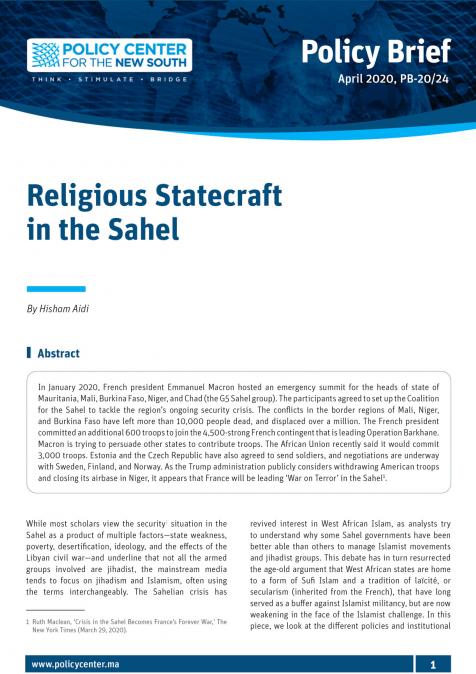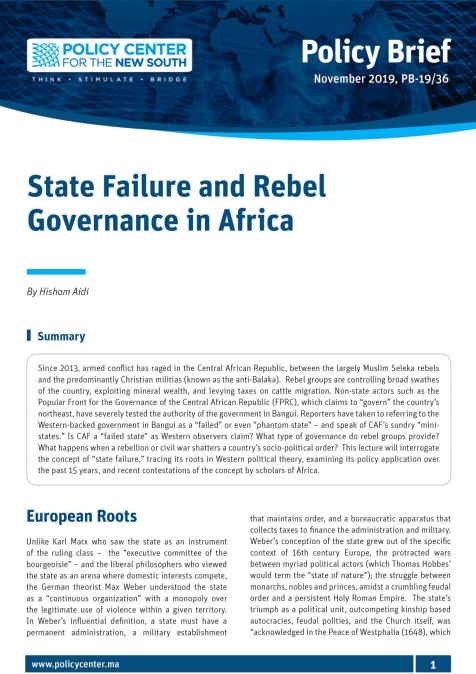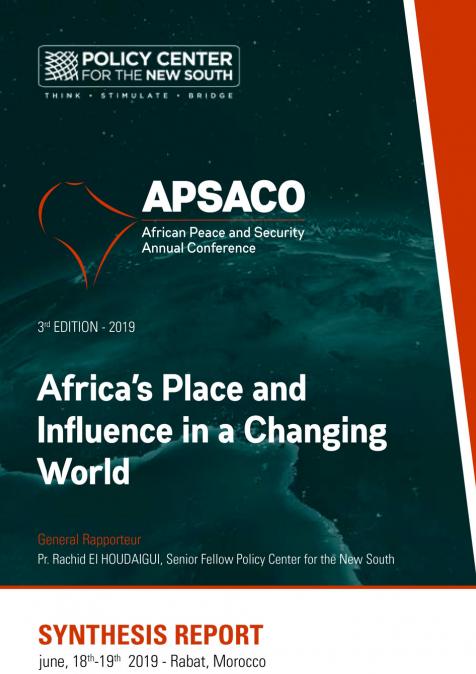Publications /
Opinion
Twenty-Four Hours
June 23-24, 2023. Over those days, Russia, the sanctioned world power, was not destabilized by the nuclear enemy in Washington, but by one man, who made his wealth serving food to school children and soldiers. A caterer who attempted a revolution. A bald man, who apparently wore wigs during his days off, as the Russian secret police claimed to have discovered when they searched his home in St Petersburg. The photos of the wig-wearing Yevgeny Prigozhin were shown on national TV, making fun of the ultranationalist, who for many Russians is a hero, a courageous character risking his life visiting the front lines in Ukraine, screaming his anger and frustration about Moscow’s failures in the war. The media treasured his prison-colored language, since a convict he once was, in younger years.
“Until recently”, noted CNN (July 6, 2023), Russian state TV “lionized Wagner’s operation in Ukraine”, but the outlets “now appear to be vilifying the founder of the private military company, following the failed uprising”. On June 23-24, Prigozhin ordered tanks to move towards the capital. Some of his estimated 50,000 fighters, many recruited in prisons and familiar with brutality, closed in on Moscow. President Putin, almost a quarter of a century in power, took the threat seriously. He changed into a black suit and on national TV compared the uprising to the wartime turmoil that led to the Russian revolution of 1917: “It’s an attempt to subvert us from inside. This is treason in the face of those who are fighting on the front” (CNBC, June 26, 2023).
In the end, the attempted coup d’état lasted just 24 hours. Nevertheless, the almost revolution shocked the world, and probably stunned the Russian people. They saw how a Russian city, Rostov-on-Don, one million inhabitants, was occupied by Wagner's fighters without a shot fired. Helicopter attacks on the mercenaries, who had taken to the highway to reach the capital, were reported; a missile strike was aimed at Wagner fighters, and a dozen or so Russian pilots were shot down by the rebels.
A Stab in the Back
Where were the defenders on the ground, Russians to fight Russians? Moscow had created a monster, a 858 billion ruble, $9.8 billion fighting machine, as estimated by the Russian TV propagandist Dmitry Kiselyov in his July 2, 2023 ‘News of the week’ program (Russian TV). These fighters were surrounded by and used to death. Ukraine’s President, Volodymyr Zelensky, estimated (CNN, July 1, 2023) that 21,000 Wagner mercenaries have been killed in Eastern Ukraine alone; an estimated 80,000 Wagner fighters were wounded. Now this battle-hardened private army did not shy away from facing national forces, which, in the early hours of the uprising, were nowhere to be seen. Roads leading into the capital were blocked by buses, taxis, lorries; workers ripped up the pavement to slow the rebels.
In those 24 hours, Russia seemed to forget the occupation of Crimea and the invasion of Ukraine. The war, a nightmare, was on the way home, destabilizing the Russian dream, the return to frightful power and glorious grandeur. “Armed by the Kremlin to fight in Ukraine”, wrote The Guardian (June 24, 2023), “the maverick warlord was now redirecting his forces at his enemies inside Russia in the most serious threat to the Kremlin since the 1991 Soviet coup d’etat attempt”. For Putin, apparently unprepared for this sudden challenge to his leadership, and not warned by his ever-present spies, the mutiny was “a stab in the back”.
The President claimed that Russia was “fighting for survival” and the reaction to this rebellion would be a “harsh retribution”. Repeat: “any internal mutiny is a deadly threat to our state, to us as a nation. It’s a strike against our nation, our people. And our actions to defend the fatherland from such a threat will be brutal” (The Guardian, June 24, 2023). “There was no question”, noted Benoit Vitkine (Le Monde June 24, 2023), Comrade Prigozhin “plunged the whole of Russia into a huge black hole”. On June 25, Guardian reporter Pjotr Sauer insisted “the authority and self image of Putin has sustained lasting damage as a result of the revolt, and Prigozhin’s continued public presence could further undermine the Kremlin's credibility”.
Prigozhin, known to be a ruthless and ambitious figure, was not thrown in shackles in front of a firing squad waiting for him on Red Square, but was received with 35 of his commanders by Putin in the Kremlin, five days after the uprising. The alleged traitor (without wig) was placed in the first row, facing Putin, the leader who had promised “harsh retribution” against the outlaw. Reuters revealed (July 14, 2023) that Putin said the mercenaries could keep fighting, but Prigozhin would be replaced by a seasoned war veteran, Andrei Troshev, who had been in action in Afghanistan and Chechnya. Prigozhin remained fearless and determined: “No, the boys won’t agree with such a decision”, the presumed traitor told the President.
An unusual figure, Alexander Lukashenko, the President of Belarus, “played a major role in ending the mutiny”, reported Gulf Today (June 28, 2023). The Belarus dictator, whose nation shares 1084 kilometers of border with Ukraine, persuaded Prigozhin in a phone conversation to halt the revolt, informing him that Putin had apparently made “a brutal decision to wipe out the mutineers”. Lukashenko then advised Putin not to rush to a violent judgement, but to propose to the rebels that they could find safety in neighboring Belarus. Lukashenko revealed in public, that he feared that, should the rebels reach Moscow, a civil war could begin, and “God forbid, the turmoil would have spread, and the prerequisites for that were enormous, we could be next”, the dictator feared (Reuters, June 28, 20023), and “if Russia collapses we will all be under the rubble”. But then: “Mystery shrouds the fate of that deal as well”, reported Reuters (July 14, 2023). Lukashenko subsequently confirmed that Prigozhin had returned, for the time being, to St Petersburg and “his life was not in danger”. Lately Prigozhin was sighted in Belarus, where Wagner fighters are preparing local soldiers for war.
His Neck Was on the Line
In public, Lukashenko reflected on the future of Prigozhin. “Well everything happens in life. But if you think Putin is so malicious and vindictive that he will ‘kill’ Prigozhin tomorrow, no, this will not happen”. Prigozhin, whose residence and headquarters are in St Petersburg, where billions of roubels in cash were discovered along with his wigs, also owns the Internet Research Company, an online troll farm, and the Association for Free Research and International Cooperation, both of which are under U.S. sanctions and have worked alongside Wagner. By the way, the confiscated cash piles in St Petersburg were not the illegally held property of Prigozhin, but cash to pay his troops, who insist on cash payments, as do the orphans and widows of Wagner fighters killed in action.The “Ukrainska Pravda” (June 24,2023)reported that Prigozhin confirmed that Russian security forces have found boxes full of money near his office …Russian media reported that the boxes contain a total of four billion roubles( appro 47 million dollars.”
ln a paper on the Wagner drama, Thomas Graham of the Council on Foreign Relations (June 24, 2023) is hesitant to predict the final outcome: “We do not know how close he (Prigozhin) is to the Russian President personally, but he certainly has a network of contacts inside the Kremlin and leverages the perception of ties to Putin to advance his business interests. Nevertheless, his ties to Putin did not deter him from launching the rebellion or Putin labelling him an outlaw, who should be severely punished”. To many Russians Prigozhin seemed brave. No Russian general was seen going close to danger.Their critic dared “The Wagner boss questioned the strategy for the war fought in Ukraine, the reasons for it, suggesting the elite was profiting, and couldn’t care less how many Russian lives were lost”. His soldiers were sacrificed, because needed ammunition and weapons were not delivered and his fighters were sent to death by an incompetent man in Putin’s inner circle: Russia’s defense minister Sergei Shoigu, with whom the Wagner boss battled for the control of the Wagner group, particularly in Africa.
Their Arsenal is Russian
At stake were the vast money-making ventures Prigozhin developed and owned for the Kremlin in Africa and beyond. At the end, within one day, the rebellion collapsed, the insurgent-in-chief ordered his troops, advancing to Moscow, to return to their barracks near the front. His decision, CNN suggested, was “to save Russian blood, but the reality was that his neck was on the line”. On that fateful Saturday, “Russia appeared to have averted an immediate descent into civil war”, suggested Andrew Roth and Pjotr Sauer (The Guardian, June 24, 2023), and Africa moved back into center of foreign military affairs.
Wagner is active in at least eight African nations. An estimated 5000 fighters, are deployed. Wagner’s businesses in the Central African Republic, to give just one example, ranges from a 290 million dollar per year gold mine to precious hardwood processing and beer and vodka production as the “Moscow Times” (June 28, 2023)quoted the US economic News platform “Bloomberg.”. “With Wagner, Russia has managed to create a very powerful business machine and tool for influence in Africa”, stated International Crisis Group’s Central Africa Project director Enrica Picco, “so the system will not fail even if there are internal struggles in Russia. The Kremlin will not let the system fail; it’s too important to them” (Moscow Times, June 28, 2023).
“It is premature to assess the effect of the present state of war between Russia and Ukraine on military cooperation between Russia and Africa”, argued Abdelhak Bassou, Senior Fellow at the Policy Center for the New South, and Affiliated Professor at the faculty on Governance, Economic and Social Science at the Mohammed VI Polytechnic University (UM6P), in his paper on ‘Military Relations between Russia and Africa, before and after the war in Ukraine’. “Whatever the outcome of the war or its consequences, some African countries will continue to maintain relations with Russia because their arsenals are Russian (as in the case of Algeria and Egypt) or because they are tied to Russia by agreements made before the war in Ukraine”. The recent revolt, wrote News.com (June 28, 2023) has “raised significant uncertainties about the future operations of the organization in distant regions. For years, Wagner has been viewed as a formidable tool of Moscow’s influence, particularly in Syria and Africa, acting as armed extension of the Russian government in various conflict-ridden areas”. Wagner relies heavily on the Russian defense ministry for the provision of troops, equipment, and weapons in its operational theatres. Likewise Moscow depends on Wagner to maintain control over the troubled regions where the group operates, actively undermining Western influence. “The butterfly effect of Wagner group’s failed mutiny has severe implications for Russian influence abroad”, noted reporter Alex Blair on News.Com. With Prigozhin possibly moving into exile in Belarus “the fate of Wagner’s endeavors in exploiting anti-western regimes hangs in the balance”.








